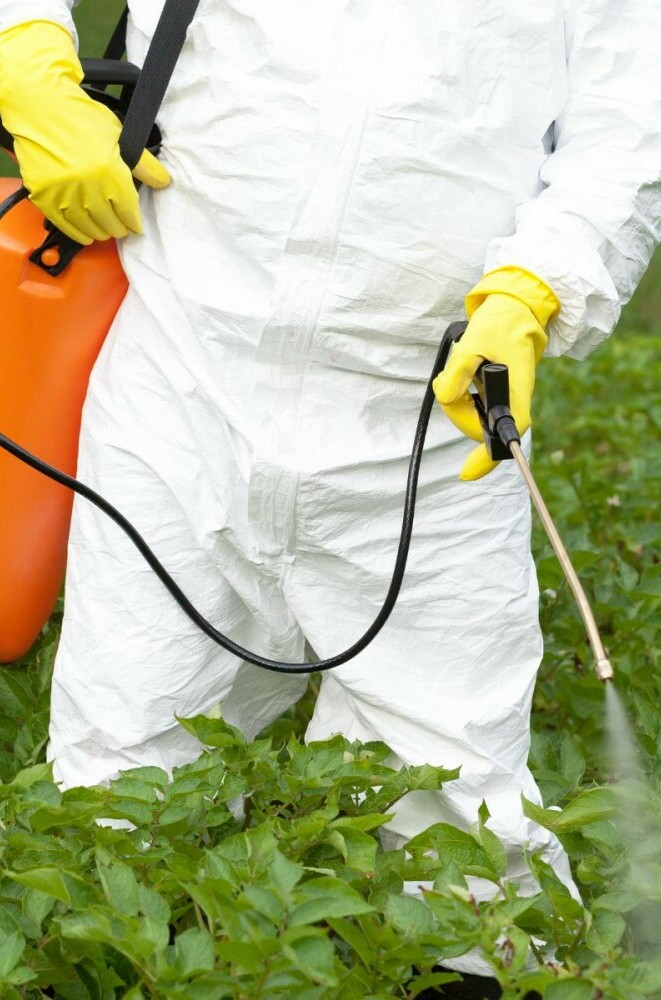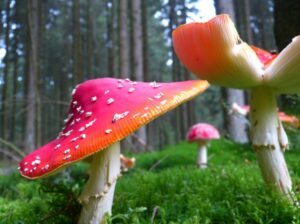Understanding the Dangers: Poison Threats to Your Chickens
Chickens, curious and industrious as they are, have a knack for pecking around in places they shouldn’t. Keeping chickens safe from poisons is a must, but unfortunately, sometimes, they come into contact with substances that can be harmful or even deadly.
From the chemicals we use to keep our homes pest-free to the plants that grow wild in our yards, the modern world is full of hidden dangers to our feathered friends.
Why might chickens ingest these contaminants? Well, they don’t know what we do about what’s safe and what’s not.
They explore the world with their beaks, and if something smells or looks interesting, they’ll give it a try.
That’s why it’s crucial for us, as their caretakers, to be vigilant and create a safe environment for them to live and forage.
Common Household Hazards: Substances Harmful to Chickens
Let’s talk about our homes.

We often use insecticides, rat poisons, and even antifreeze in and around our properties.
These items are incredibly toxic to chickens. Insecticides meant to kill bugs can be just as lethal to a chicken, and rat poison is designed to kill mammals—a category close enough to birds to be dangerous. Antifreeze, with its sweet taste, can be irresistible to chickens, but it’s incredibly poisonous.
To prevent accidental ingestion, always keep these substances far out of reach of your chickens. Store them in sealed containers and in areas where your chickens never roam. Vigilance is key.
Nature’s Hidden Traps: Potentially Poisonous Plants and Foods
While we often associate nature with health and vitality, it’s important to remember that not everything that grows in the wild or in our gardens is safe for our backyard chickens.
Many plants, while beautiful or even delicious to humans, can be toxic to chickens.
Additionally, certain foods that are perfectly fine for human consumption can be dangerous to our feathered friends.
Toxic Plants
Chickens, with their instinct to forage, may inadvertently consume plants that are harmful to them. Here are some common toxic plants that might be found in a typical garden:
- Foxglove (Digitalis purpurea): Beautiful but deadly, foxglove contains digitalis, which can affect the heart.
- Rhododendron and Azalea: These common ornamental shrubs contain grayanotoxins, which can disrupt cellular function and prove fatal in high doses.
- Nightshade family plants: While the fruits of some, like tomatoes and peppers, are safe when ripe, the leaves and stems contain solanine, a known toxin.
- Castor bean (Ricinus communis): The seeds contain ricin, one of the most toxic naturally occurring substances.
To protect your chickens, consider these steps:
- Conduct a thorough survey of your yard and remove any plants known to be toxic to chickens.
- If removal isn’t possible, fence off these plants to prevent access.
- Educate yourself and your family about the plants in your garden, and monitor your chickens when they are free-ranging.
Dangerous Foods
Chickens are not discerning eaters, which means they might consume foods that are unhealthy or even toxic to them. Some foods to keep away from chickens include:
- Chocolate: Contains theobromine and caffeine, which are toxic to chickens.
- Avocado (especially the pit and skin): Contains persin, a fungicidal toxin that can cause heart problems and even death in birds.
- Onions: Can cause anemia or jaundice in chickens due to the presence of thiosulfate.
- Raw beans: Contain lectins, which can be harmful to chickens.
Food Safety
Another aspect of food safety is ensuring that chickens do not consume spoiled or moldy food. Botulism, a potentially fatal disease, can occur when chickens ingest spoiled food or come into contact with the bacteria in the soil. Here’s how to prevent it:
- Keep your coop and run clean of old food and waste.
- Ensure that any table scraps are fresh and free of mold.
- Maintain clean and dry bedding, as damp conditions can promote the growth of harmful bacteria and fungi.
Mushrooms and Molds

Wild mushrooms can be a gamble; some are safe, but others can be highly toxic. Since it’s difficult to distinguish between safe and unsafe varieties, it’s best to remove any wild mushrooms from your chicken’s environment. Molds, particularly those that grow on damp feed or litter, can produce mycotoxins, which are harmful to chickens. To combat this:
- Store feed in a dry, airtight container.
- Regularly inspect the coop for dampness and clean up any spilled feed immediately.
- Consider adding mycotoxin binders to feed if you live in a particularly damp climate.
By being aware of these natural hazards and taking proactive steps to manage them, you can greatly reduce the risks they pose to your chickens. A little bit of knowledge and a lot of observation can go a long way in keeping your flock safe and healthy.
Invisible Killers: Carbon Monoxide, Mercury, and Rock Salt Poisoning in Chickens
Some threats aren’t as visible or as well-known. Carbon monoxide from engines, for example, is a silent killer.
Make sure that your chickens are not housed near any place where engines run. Mercury, found in some types of lighting and batteries, can also be a risk if not properly disposed of.
And while rock salt keeps our paths clear in the winter, it can be harmful to chickens if ingested in large quantities.
A Healthy Coop: Safeguarding Your Chickens from Toxins
The best way to keep your chickens safe is through prevention. Here are some best practices:
- Regularly check your coop and run for any foreign objects or substances that shouldn’t be there.
- Practice natural pest control methods to reduce the need for chemical interventions.
- Dispose of waste properly and ensure your chickens can’t access trash areas.
- Educate yourself on what’s toxic to chickens, and keep a list handy for quick reference.
Remember, a little bit of knowledge and a lot of vigilance can go a long way in keeping your backyard flock safe from poisons. Your chickens depend on you to keep their world free from these dangers, and there are many, so take the time to ensure their home is as safe as it can be.
We talked a lot about foods, but remember to make sure that their water is always safe to drink as well.
Do you know of more things toxic to chickens that we easily overlook in our garages or gardens? Let us all know in the comments below or email at the address below.
Dave
Chickenmethod.com

